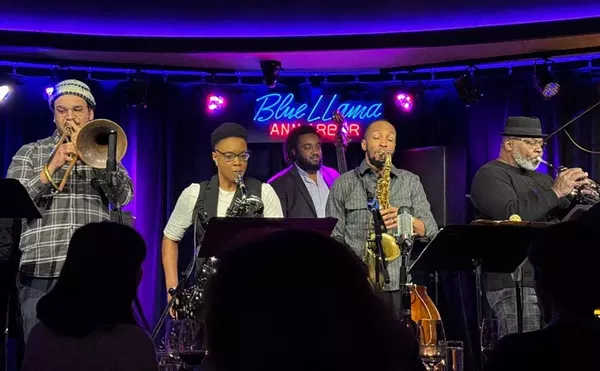"I don’t play ‘African Blues,’" explains Ali Farka Toure. "Those guys along the Mississippi Delta play ‘Malian-American music." Still, if Toure had a twin brother across the Atlantic, separated at birth, it would probably be John Lee Hooker.
Africa’s pre-eminent bluesman … oops, rather master of Malian folk music, is back with his first album since his Grammy award-winning Talking Timbuktu. Here, unlike his recent projects (including Timbuktu with Ry Cooder and The Source with Taj Mahal), Toure returns to his roots with an all-Malian cast.
After years of international touring to support his albums that seemed to have a permanent place atop the Billboard world music chart, Toure spent most of the past five years at his farm in Niafunke (in northern Mali). "My Home is in the Desert" could be an apt subtitle for Toure’s latest. He didn’t want to leave home, so the crew from World Circuit traveled to the Sahara with a portable studio to capture Toure in his environment.
The result here in Niafunke is definitely a more "Malian" album than much of Toure’s work over the past decade. The man who epitomizes cool and whose music is synonymous with infectious grooves manages to capture much of the raw guts that made him, and Malian blues, famous around the world.
The record is a mix of trademark Toure electric and acoustic blues, with calabashes used as percussion and the occasional touch of the njarka (a single-stringed African violin). A chorus of female backing vocalists adds a fresh touch.
Still there is at times an inconsistent feeling on Niafunke. Half of the songs, including "Howkouna" and "Allaha Uya," seem to be full of Toure’s raw passion – songs where you can almost hear the sweat beading on the guitarist’s forehead – but sadly, there are a few tracks that seem to miss the mark, a feeling that Toure had better takes up his sleeve, leaving an impression that the album seemed to have been recorded in a hurry (ironic, considering that it has been five years since his last release).
Still, since the man is a musical giant, an album where half of the 10 tracks are scorchers isn’t bad. It is, in fact, far better than most West African albums released in recent memory. It is regrettable for us Americans that Toure isn’t in the mood to tour, so, at least for now, we’ll have to make do with this "almost-live-in-the-desert" recording.






